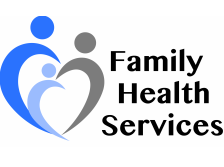Cancer Screening Basics and Recommendations
At Family Health Services, we’re proud to provide a variety of care programs to patients of all ages. Our family health care services include an emphasis on early screening for several different conditions from a family doctor.
One broad category that relies on screening for vital early identification is cancer. As one of the most deadly conditions on earth, detecting cancer as early as possible is a huge factor in survival rates and quality of life. Let’s go over some age ranges, and when you should consider having a cancer screening.
Men Ages 20 to 49
During these ages, there generally aren’t any standard screenings recommended – unless the subject is at an elevated risk of colon or prostate cancer, in which case screenings for these might be recommended.
Women Ages 20 to 39
Things are different for women in this age range. The American Cancer Society recommends that women begin having Pap smear tests at age 21 – this should happen once every three years until the 30th birthday, and an additional HPV test should be done if the Pap comes back abnormal.
From here, women should either continue having a Pap smear every three years, or can choose to have a Pap smear combined with an HPV test every fie years. Any women who notice changes in the breasts or are at an increased risk for colon cancer may be recommended other tests.
Men Over 50
Men should begin screenings for colon cancer when they reach age 50, and many should also consider prostate cancer screening options. For men who have smoked in the past, lung cancer testing may be recommended at age 55 and beyond.
Women Ages 40 to 49
Women in their 40s retain the same recommendations for cervical and colon cancer screenings but should begin getting annual mammograms for breast cancer at age 45. Some women even choose to begin these programs at age 40.
Women Over 50
There are a few big changes for women as they reach age 50 and above:
- Pap smears and HPV tests are recommended at the same intervals as listed above – unless the women have had a hysterectomy.
- Women will no longer need cervical cancer screenings past age 65 if they’ve had 10 consecutive years of normal tests.
- Mammograms are recommended every year until age 55, at which time they can be moved to every other year.
- Colon cancer screening should start at age 50.
- Women who have smoked in the past should begin lung cancer screening at age 50.
For more on when you should begin cancer screening, or to learn more about any of our family health programs, speak to the caregivers at Family Health Services today.
